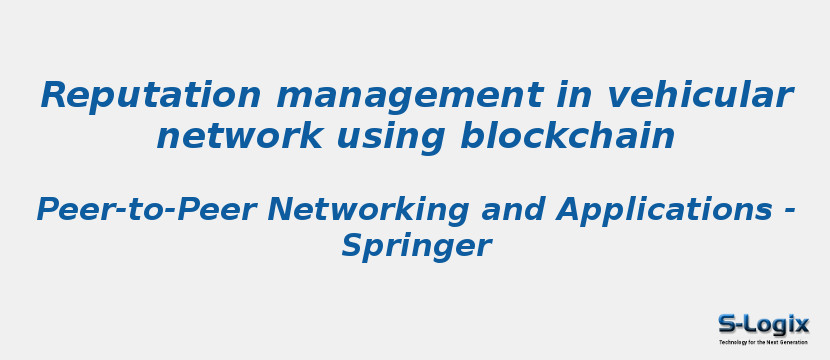Research Area: Vehicular Ad Hoc Networks
The recent advancements in the Internet of Things (IoT) have engendered an increased penetration of cyber-physical systems such as internet-enabled devices and sensors for surveillance and management applications. This has posed an increased risk of attacks in these devices and networks by malevolent agents. Social Internet of Things (SIoT) is an emerging paradigm that incorporates the concept of Social Networking into the Internet of Things that paved the way to an area called Social Internet of Vehicles (SIoV) that is capable of autonomously establishing social relationships among other network participants for the overall system improvement. Due to the ad-hoc nature of the environment, it is hard to ensure the trustworthiness of the nodes to rely on the opinions, messages, and credibility of the message senders. We propose a Blockchain based reputation management system using Bayesian Inference approach for estimating the posterior probability of trustworthiness of each decision-making node in the network based on the decisions on incidents concerning the hypothesis. A dynamic weight learning mechanism of nodes and events is proposed for an efficient decision system. The proposed decision fusion algorithm is a novel voting mechanism based on the reputation of the node and the importance of the event. This approach uses Blockchain as a solution for identity management for node authorization and access control, and also for distributed storage of node reputation scores. The decision strategy of the proposed work outperforms other decision approaches such as simple majority voting, weighted voting, fuzzy rule-based inference, etc. The proposed approach out performs the state of the art trust management algorithms as discussed in results section, on the degree of punishment the propose algorithm offers to malicious activity.
Keywords:
Author(s) Name: Jennath H.S & Asharaf S
Journal name: Peer-to-Peer Networking and Applications
Conferrence name:
Publisher name: Springer
DOI: 10.1007/s12083-021-01249-5
Volume Information:
